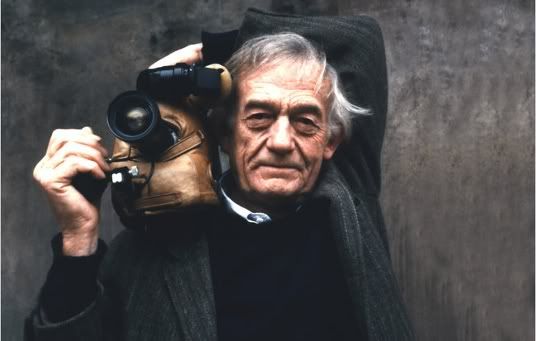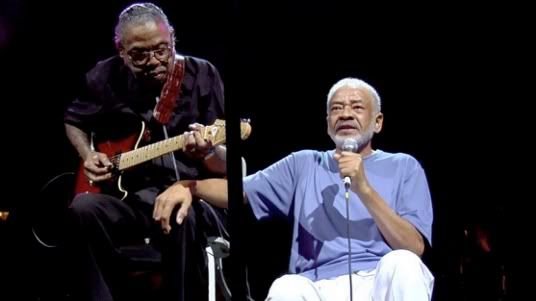
Richard Leacock, the British cameraman and documentarian behind some of the most influential films of the last century, including Louisiana Story, Monterey Pop and the JFK/Humphrey showdown Primary, has died. He's one of those people who've made a lasting impact on our culture, as a key purveyor of cinéma vérité or "fly on the wall" cinema, but never developed a strong following or recognizable name. His camera work was simple and clean, focused on the characters and their surroundings as they were. That's not to say his films aren't beautifully framed, but he was a great at capturing the beauty and significance of ordinary and extraordinary lives.
Louisiana Story, which was directed by Robert J. Flaherty (of Nanook of the North), is one of my favorite films, period. Leacock's camera goes into the heart of the bayou and out onto oil derricks, to places that few films documentary or feature (Story straddles that line) have gone before or since. Some of the shots he achieves with just a handful of actors, an outboard and a camera have to be seen to be believed. It's available on Netflix Instant, so if you've never heard of it (or Leacock), please check it out.
Obviously, there's also the sad news of Elizabeth Taylor's passing, but I don't feel the same connection to her work. I don't doubt her potency as a star and her skill as an actress, but for me Taylor is still most closely tied to the awful perfumes she hocked and her photo-ops at pal Michael Jackson's creepy Neverland Ranch. But now is as good a time as any to revisit her more substantial work.

